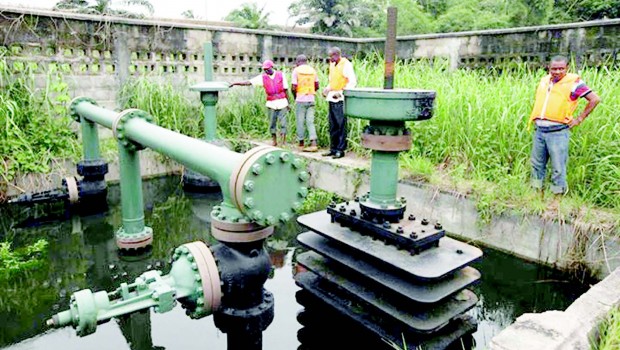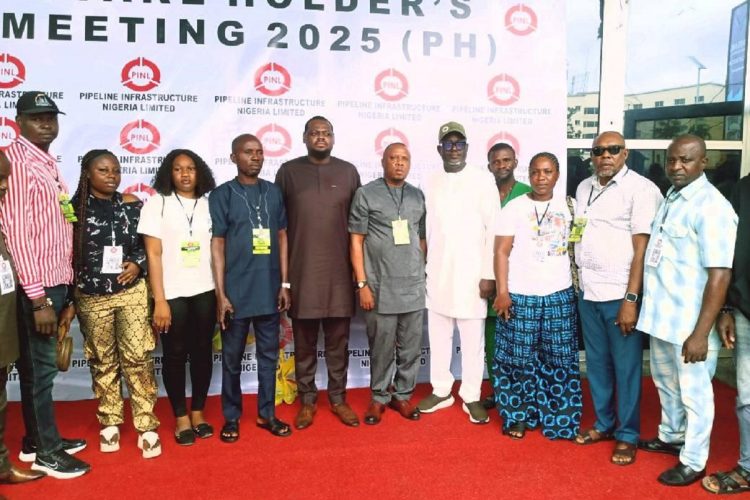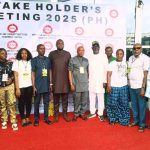
Edo disburses N104.1m to farmers
February 19, 2014
Cooperative Society Plans 18 Mini Refineries In Niger Delta
February 24, 2014By Africas Lawal
P4P Project Manager, Mr. Colins Imoh, opened up the workshop by giving an overview and introduction of PIND EDC Warri office to the participants, which was followed by brief introductions of the participants. PIND Field Project Manager, Mr. Sylvester Okoh, addressed the participants and instructed the participants to view this workshop as an essential tool to help them achieve their desired goals, reminding them that success is only achieved through perseverance. PIND EDC Warri Security Manager, Col. Myke Ekpe (rtd.), followed and gave an overview of the safety rules of the office, including muster points and exit routes in case of an alarm.
Mr. Nate Haken, an advisor for the Partners for Peace, kicked-off the workshop by highlighting key objectives of the workshop, including the importance of the workshop in enhancing the participants’ peace building capabilities. As part of his introduction, he gave a brief overview of the Niger Delta when it comes to peace, noting that in the last few years a relative peace has been experienced in the region and that this new-found peace is the responsibility of everyone to uphold, especially as activities in the lead-up to the 2015 Presidential and State elections heats up. At the end of the workshop, Mr. Haken noted that participants will have a strategic and firm framework for conflict assessment in each of the 9 Niger Delta states, will be able to address and understand the pattern and trends from data gathered in the field, and in turn be able to analyze the data. In addition, participants will be able to articulate the different narratives and causes of conflict, including a deeper understanding of the tools needed to produce reports:
- Cast Methodology
- Conflict Bulletins
- Virtuous and Vicious cycles
Participants from the workshop came from a diverse background, as highlighted by PIND’s multi-stakeholder angel in achieving sustainable development for the Niger Delta. Mr.  Nate Haken stated that the approach for a successful assessment of conflict is centered on 3 components:
- Holistic theoretical framework
- Relevant and timely data at varying levels of spatial-temporal granularity
- Meaningful aggregation, integration, and interpretation
During the workshop, participants were broken up into small groups to conduct work on conflict assessment data and prepare for final presentations. Presentations were grouped into different states and were based on the indicators of the CAST methodology, listed below:
- Demographic pressures
- Refugees and internally Displaced persons(IDPs)
- Group Grievance/Collective Violence
- Economic Pressures
- Government
- Public Services
- Human Rights
- Insecurity
The first day of the workshop ended with discussions on conflict issues pertaining to key states and personal experiences with conflict – participants shared the reasons they stand for peace, knowledge of some ex-militants going back to violence after participating in the Amnesty program, issues of kidnapping and robbery in Abia state, including the high rate of HIV/AIDS in the state.
Day 2:
The second day of the workshop began with a re-cap of day 1 by Mr. Colins Imoh . Mr. Haken reviewed the reasons for conducting conflict assessment, including a better understanding of conflict dynamism, trends and patterns of conflict. In the workshop setting, Mr. Haken reminded participants that it is important to keep these objectives fresh in mind to enable a more inclusive environment that is open to diverse opinions. As peace agents, important factors to remember when conducting assessments in the field is to ask more open-ended questions and to realize that those being interviewed are the focus of the discussion. The end result of any assessment is to mitigate and eventually resolve conflict.
Some key factors shared during the workshop:
- Always remain neutral to get results.
- Location should be investigated.
- Important to brief the interviewee ahead of time of expectations and duration.
- Follow up on what was discussed.
- Gender Sensitivity.
When it comes to the interviewee, the following highlights were shared:
- Ownership and sustainability.
- Information sourcing (verify that the information is accurate to the best of your abilities).
- Giving out opportunities to air out their views. (ensure a comfortable environment that is free from any bias).
Participants were asked to create their own agendas for conducting assessments in consultation with their state coordinators and the consultants in the room. At the end of day 2, a single agenda was selected to be duplicated in future trainings on conflict assessment workshops across the 9 states. There was also a discussion on the number of participants at future workshops to ensure true engagement, how to kickoff the workshops, and the profiles of ideal workshop participants (government officials, stakeholders in the region, and P4P network members).










